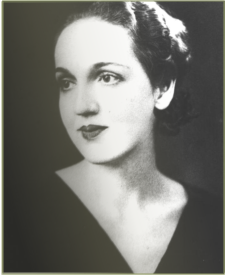 Sad to say, Wolfville Town Council voted on Monday, June 25 to adopt a policy concerning the naming of public places that is a synthesis of a hodgepodge of policies from other jurisdictions (including Calgary?!), rather than referring these examples to a committee of council to create a truly made-in-Wolfville policy. The latter approach was used a few years ago to change street-use and signage by-laws in Wolfville that suited the Town’s unique character. The process took a year, but the results were reflective of the research undertaken and input received from businesses and individuals.
Sad to say, Wolfville Town Council voted on Monday, June 25 to adopt a policy concerning the naming of public places that is a synthesis of a hodgepodge of policies from other jurisdictions (including Calgary?!), rather than referring these examples to a committee of council to create a truly made-in-Wolfville policy. The latter approach was used a few years ago to change street-use and signage by-laws in Wolfville that suited the Town’s unique character. The process took a year, but the results were reflective of the research undertaken and input received from businesses and individuals.
Oddly, the groundswell of support for naming Ye Olde Towne Clocke Parke in honour of Mona Parsons served to change the existing policy to the worst kind of politically correct Pablum. Guided by such a policy, the Town could conceivably be littered with plaques commemorating all the nameless, faceless individuals who ever committed Random Acts of Kindness and Senseless Acts of Beauty, rather than granting recognition to those who stand head and shoulders above most citizens by having done an extraordinary service for their community and/or their country. Mona Parsons, by dint of operating in the nascent Dutch Resistance for over a year and serving almost four years in Nazi prisons and camps for her actions, arguably deserves such recognition, regardless of the short-sighted political correctness of members of Council.
There are certainly other women in Wolfville’s history who deserve recognition for their contributions to the community and to the country, (e.g. Constance Hayward and Esther Clark Wright are two whose names were suggested) but every name thus far put forward was engaged in work she enjoyed and for which she received some sort of remuneration and/or recognition (and that’s most certainly the case for the men whose names were also suggested). One person even suggested that the park should be named for Evangeline, a fictional character created by Longfellow for the poem of the same name, because she represents the wrongs committed by the English against the Acadians. Since the Grand Pre park, which houses the commemorative statue to Evangline, is about to get a UNESCO World Heritage designation, most would agree that this character and the tragedy that resulted from the expulsion of the Acadians will be well-recognized.
In contrast with the historical figures whose names were put forward as being at least as worthy, Mona – though passionate about freedom – could hardly be said to have been engaged in work she “loved”. She did not serve on committees or councils of the Resistance who plodded along, debating the merits of action or caution, and looked to other Resistance movements to obtain a consensus on how each had conducted its activities before finally deciding on a synthesized approach to rescuing downed Allied airmen. Mona and her compatriots got down to the business at hand – and all without having a leader, a corporate structure, terms of reference, a mission statement, or even any particular regard to their own safety or well-being. And, unlike every other woman whose name was put forward as deserving recognition, Parsons unequivocally put her own life on the line. Women like Constance Hayward and Esther Clark Wright might have been willing to do so for the sake of freedom, but none were ever called upon, or found themselves in circumstances where that could happen. None experienced hearing a death sentence proclaimed on her life, nor the deprivation and degradation of Nazi prisons.
So, despite 300+ signatures on a petition, and ignoring a request from Elizabeth Kloosters to read into the minutes of the June 25 Council meeting a statement of why the park naming is important from a historical and a personal perspective, Council voted for politically correct pap cobbled together by the Chief Administrative Officer and her staff – which begs the question, “Who serves Council, and whom does Council serve?”. To quote the caption on an image circulating on the internet, “ERROR 404 – Democracy not found.”